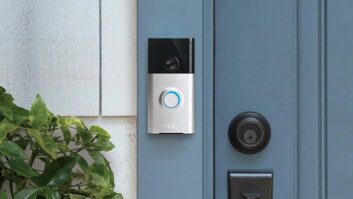New York — Sirius Satellite Radio CEO Mel Karmazin accused the National Association of Broadcasters (NAB) of “rattling its sabers” and aggressive lobbying following the NAB’s recent call for the removal of certain satellite radio devices from store shelves.
The NAB announced yesterday that it sent a letter to the Federal Communications Commission (FCC) urging the commission to recall satellite radio devices that fail to comply with Part 15 FCC rules on emission field strength limits.
The NAB said in June it tested 17 wireless FM modulator devices for both satellite radio and MP3 players that are currently on the market and found that 13 were non-compliant (76 percent). It said six of those devices exceeded the FCC field limits by 2,000 percent. Some of the products also transmitted signals that were “substantially wider in bandwidth than permitted by the FCC,” resulting in “potential interference to adjacent channels.”
The NAB letter to FCC chairman Kevin J. Martin, dated July 28, also stated, “The Commission should consider steps to halt the further distribution and sales to consumers of satellite radio devices that violate your rules.” It said, “NAB would urge the commission to seek recall of non-compliant devices from XM’s and Sirius’ major distributors and retailers.” The NAB claimed this action is necessary to prevent disruption to “listener’s use and enjoyment of free over-the-air radio services.”
Karmazin countered during Sirius’ financial earnings webcast on Aug. 1, “There are very few bona fide [consumer] complaints of any interference. It is our belief that a recall would not be in the public interest at all, especially when we have a variety of other solutions that could be implemented more quickly.” Sirius said it has not yet heard from the FCC on this matter.
Separately, XM also said it has not heard from the FCC regarding a recall. An XM spokesman said that after several months of adjusting its products to meet FCC requirements, it believes its products are FCC compliant. XM is now awaiting final FCC approval on certain products.
Karmazin noted, “There has been no history of FCC recalls in that area.” He also said of the NAB’s recent actions, “The NAB is moving from an organization that used to play defense” to “offense and it is looking to muddy waters.”
For its part, the NAB said, “We’re going on the offensive to try to protect consumers from the interference caused by satellite radio products … We’ve presented scientific evidence that Sirius, XM and other products are violating the FCC’s emissions standards. Now it is up to the FCC,” according to a spokesman.
An FCC spokesman said, “We are reviewing the letter.”
Certain XM and Sirius products emissions levels have been under investigation by the FCC at least since the spring. Sirius said its suppliers have stopped producing these products and it is now working daily with the FCC to bring them into compliance.
Karmazin said that Sirius has enough supplies in the market of current product to meet demand and that it expects to have “greater clarity on the issue shortly.”
XM announced in May that the FCC was looking into the compliance of certain of XM’s FM modulator-based radios. Since then Sirius has filed a Form 8-K with the Securities and Exchange Commission indicating that it learned in April that two of its suppliers received letters of inquiry from the FCC on emissions and frequency compliance.
Sirius also admitted in the filing that during its internal review it learned “that certain Sirius personnel requested manufacturers to produce Sirius radios that were not consistent with the FCC’s rules.” The company said it is adopting internal rules to ensure in the future that all products comply with FCC rules.













